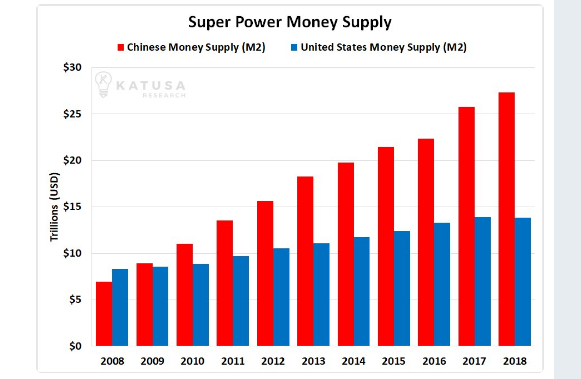America's Fantasy
President Trump, who some libertarians believe is the most libertarian president since Coolidge, after enacting a very unlibertarian package of tariffs on aluminum and steel, now has the extraordinary plan to urge judges to pursue the death penalty for those convicted of selling drugs.
"If you go to Singapore, I said, 'Mr. President, what happens with your drugs?' 'We don't have a problem. We have a zero tolerance. We have a different type of people,' " Trump said.
"They don't play games. I said, 'how are you doing on drugs?' 'No problem.' I said 'what do you mean no problem?' 'We have a zero tolerance policy.' What does that mean? 'That means if we catch a drug dealer, death penalty.' "
The Weekly Standard reports that at least a few House Republicans are oakie doakie with the idea. “Absolutely,” said [Chris] Collins. “I think we need to have real consequences.”
“If the president would support it, I am very open to hearing it,” House Rules Committee chairman Pete Sessions told Haley Byrd.
No doubt, members of Trump’s base will put down their bottle of beer and turn away from WWE wrestling long enough to say, “Hell yeah, drug dealers should be shot.” Burp.
Pro-Trump libertarians will say, “Hey, he’s better than Hillary. You like your tax cut don’t you?”
Kurt Andersen writes in his book “Fantasyland How America went haywire: A 500-year history,” the current president is “stupendous Exhibit A” in the landscape of “Fantasyland,” a fitting leader for a nation that has, over the centuries, nurtured a “promiscuous devotion to the untrue.”
America was founded by those seeking refuge from religious persecution and Andersen lets the likes of Joseph Smith, L. Ron Hubbard and Norman Vincent Peale have it. Smith had a burning bush, while “Peale’s approach was perfect for it’s American moment: breezy self-help motivational cheerleading mixed with supernatural encouragement, Dale Carnegie plus the Guy Upstairs.”
Hubbard morphed from sci-fi author to religious prophet. When his book, “Dianetics” was a bestseller for two years, he realized there was more profit in being a prophet and “transformed the whole thing from a pseudoscience into a religion, the Church of Scientology.” Meanwhile, Peale’s “Power of Positive Thinking” spent three years on the New York Times bestseller list.
A young Donald Trump attended Peale’s 5th Avenue Presbyterian church and the positive thinking pastor officiated Donald’s first marriage to the currently silent and mother of his older brood, Ivana
America was built on entrepreneurship and the “American faith in faith.” Andersen sees “every entrepreneur’s job is to persuade and recruit others to believe in a dream, and often those dreams are pure fantasies.” Andersen is no fan of capitalism and chronicles the numerous railroad bubbles and busts along with the panic of 1873, through a lens of hucksters taking advantage of rubes.
P.T. Barnum makes an appearance in Andersen’s story, quoting the famous promoter, “the perfect good-nature with which the American public submits to a clever humbug.”
Barnum and the president have been compared often, with Kevin Young writing, “the Age of Euphemism has its modern inheritor” to Barnum in Trump, a man similarly aware of the press, “by turns defiant of and dependent on it in ways that only reinforce the spectacle's power.”
James Fellows explains in Vanity Fair,
They both experienced bankruptcies and ran for office (Barnum served one term as mayor of Bridgeport, Connecticut, and in the legislature) and, yes, both “planted fake-news story as matter of course.” Admittedly, Barnum didn’t start a phony university, pretend to be his own publicists, or fabricate Timemagazine covers that filled halls in his properties.
“Delusional ideas and magical thinking flood from the private sphere into the public,” writes Andersen, become so pervasive and deeply rooted, so normal, that they affect everyone.”
For those considering possible 2020 Trump opponent Oprah Winfrey, Andersen writes, she, “is responsible for giving a national platform and credibility to magical thinking New Age and otherwise. In her broad domain, she is the Cotton Mather, John Wesley, Brigham Young, and Billy Graham, the first New Age pope.” He continues, I believe she’s both sincere and a brilliant Barnumesque promoter of her dreamworld.”
So, perhaps, we haven’t seen anything yet. Fantasy marches on.






